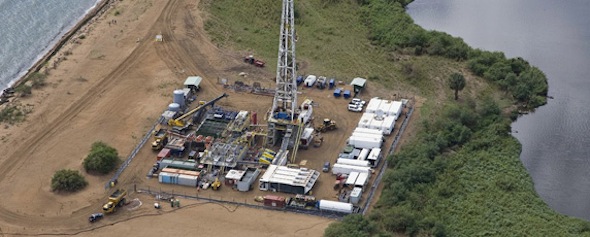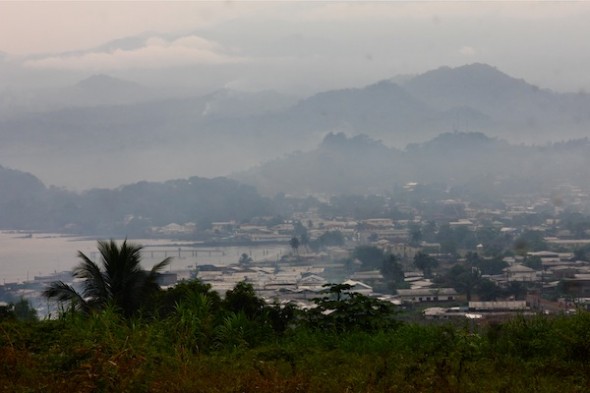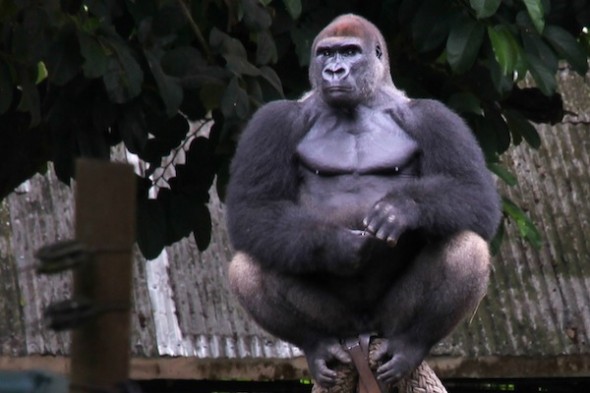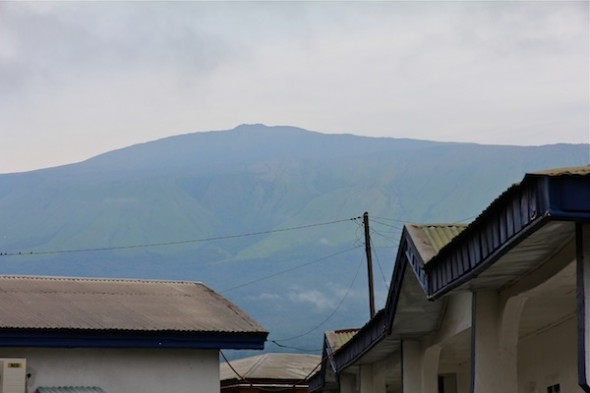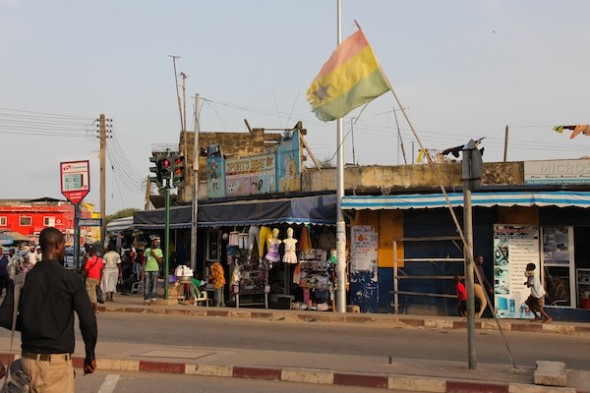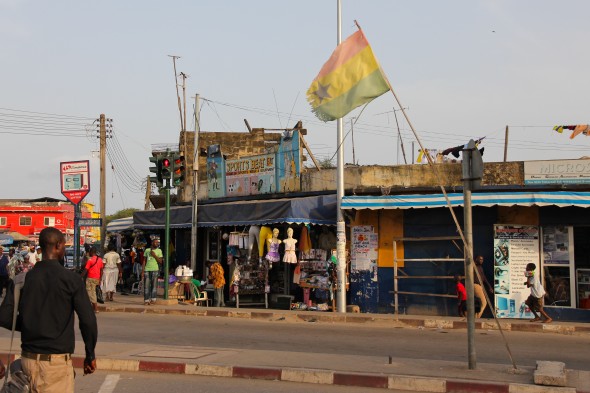Oil, Money and Secrecy in East Africa
Tom Rhodes, the Committee to Protect Journalists’ East Africa Consultant, has written an interesting story on the secrecy surrounding oil development in Uganda, Kenya and South Sudan. Rhodes writes that the inability of journalists to access information and report on contract deals and resource allocation greatly increases the risks for corruption and environmental degradation. Last year I wrote a post on Tullow Oil’s secret deals in Uganda, contrasting that situation to Tullow’s much more transparent operations in Ghana.
After I published that story a Tullow Oil representative contacted me and explained that Tullow’s practices were dictated by local governments. Tullow can be transparent in Ghana because the government wants to be transparent. In Uganda, the official told me, the government does not want contract information published.
Limbe: conflicted tourism
Limbe, in Cameroon’s Southwest Region, is a gem. A coastal city famous for its black sand beaches, Limbe is located on the southern slopes of Mount Cameroon, one of Africa’s largest active volcanoes. The town is surrounded by lush forest and is home to the Limbe Botanic Garden, a 48-hectare expanse of majestic greenery bordering the Atlantic.
The Limbe Wildlife Centre is another one of the city’s attractions. The center was founded in the early 1990s as a rescue and rehabilitation center for orphaned primates. The first time I visited the center it was an open space. I’ll never forget the gorilla who stood on two legs and walked straight up to me as if he wanted to say something. Amazing. Today, the center is divided up into compounds and feels more like a zoo, but it’s still a great place to visit and marvel the biodiversity of this country.
But there’s more to Limbe than beautiful scenery.
Kosmos Cameroon: Oil exploration in a national park?
Kosmos Ghana gets most of the attention, but since I’m in Cameroon I decided to take a look at Kosmos Energy’s operations here. The company has a 100% interest in two onshore blocks, the Ndian River and Fako. Kosmos is also a non-operating partner (with a 30% interest) in a third block, the Kombe-Isepe. The company’s website provides some basic information on the blocks, including their size: “The company’s acreage position onshore Cameroon is the equivalent of more than 200 deepwater Gulf of Mexico blocks.”
Both the Ndian River and the Fako blocks are located in the vicinity of Mount Cameroon and the proposed Mount Cameroon National Park. In fact, a significant percentage of the Fako block is inside the proposed national park (Fako is another name for Mount Cameroon). The Ndian River block may also overlap the western edge of the park. The Kombe-Isepe block is located further east, between Douala and Edea.
There’s no information on the Kosmos website to indicate that the Cameroonian blocks are located in sensitive areas.
Ghana’s oil worries?
I have a decent internet connection this morning, so I’ll take advantage of that to post some of the back and forth between Ghanaian think tank, IMANI, and the Ghana National Petroleum Corporation (GNPC). IMANI has recently published some interesting articles on the Jubilee field’s underperformance. In contrast to the excited tone of most of the business news about the country’s oil industry, the IMANI articles raise serious questions about the industry’s costs and prospects.
Worrying Developments in Ghana’s Oil Sector discusses production levels that are hovering around 60,000 b.p.d. The projected 120,000 barrel daily output has never been met and at this time, it is unclear when production will reach this level. IMANI has questioned both the speed of the Jubilee field development and the original production projections.
Is Ghana really ready for oil?
Is Ghana ready for an oil disaster? It’s difficult to find officials who want to talk about the subject. Most prefer saying things like, “We learned many lessons from the Deepwater Horizon spill,” and, “It can’t happen here.” Truth is (and everyone knows this), a disaster can strike anywhere.
Ghana has been producing oil from its offshore Jubilee field since December 2010, yet still lacks monitoring vessels, equipment and personnel. The country has an “oil spill response plan” — on paper — but could Ghana actually respond to and deal with a significant oil spill?
This video and a new article published today on iwatch news explore the state of Ghana’s environmental regulation and emergency preparedness.
Waiting for Kosmos…
Waiting for Kosmos. I wait endlessly and (so far) in vain for a meeting with someone I do not know. Does this sound familiar? If and when we meet, I will likely learn nothing. But then I would be able to say that Mr. X of Kosmos Energy assures me that all matters have been amicably resolved, which would make my reporting appear somehow more objective. A meaningless statement is better than no statement, or so goes the logic.
Oil City: Where are the Jobs, pt. 2
“Oil City,” Ghana’s new Wild West. There may not be many oil industry jobs here for the moment, but the fortune seekers, schemers and scammers have arrived and there’s snake oil for sale on every corner.
Here’s part of one email I recently received (I’ve removed names and numbers):
I was offered a vacancy by an engineer whom does recruiting for jubilee oil rig (tel +233-xxx-xxx-xxx Mr. xxxxx) he told me to obtain visa etc we had to pay in 490 us dollars via western union and that he would get back to me he now is asking for a further 1699 us dollars for some documentation levy payable to Ghana Maritime labour law it is for the certification of employment and travel documents under GMA prior before delivery as a new employee joining the Ghana jubilee oil field.

